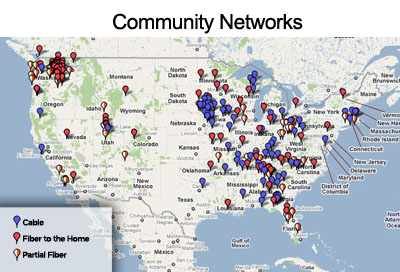Image


Two weeks ago, Deutsche Telekom (DT) Chief Technology Officer Olivier Baujard accidentally spoke truth about T-Mobile to an audience of German investment analysts. After running through the usual company talking points about the effort to sell T-Mobile to AT&T (e.g., it will happen, DoJ is just playing hardball with negotiations, etc.), Baujard said at a public presentation at a Paris broadband conference that: “any rational company had a Plan B and that Deutsche Telekom had other opportunities for its U.S. operations should the U.S. Department of Justice succeed in terminating the deal.” This is vitally important because, after accidentally shooting the “this is the only way to bring 4G to rural America” argument in the foot by accidentally leaking documents proving AT&T could bring 4G to rural America whenever it wants, and T-Mobile killed the ‘this will create jobs’ argument by confirming that it was preparing pink slips for more than 20,000 employees after the acquisition gets approved, the “T-Mobile is a sickly gazelle” argument is about all AT&T and it supporters have left. Unfortunately for AT&T, this is not the first time Deutsche Telekom has screwed up the “sickly gazelle” storyline by revealing inconvenient truths about its other options.
I've had a long stretch on the road, leaving me with little time to post stories, so in leiu of doing nothing, I encourage you to read a short history of AT&T from Matthew Lasar in Ars Technica: "How AT&T Conquered the 20th Century."
Also, let's continue celebrating that the Department of Justice has correctly found that the AT&T takeover of T-Mobile would have bad consequences without any compensating upside for us.
For now, city government plans to retain exclusive use of the network for municipal agencies as it tests it with applications including Navy SEAL-esque head-mounted cameras that feed live video to police headquarters, traffic lights that can be automatically adjusted at rush hour, and even water contamination sensors that call home if there’s a problem beneath the surface of the Tennessee River.Much of the wireless network is being funded by state and federal grants -- Chattanooga is turning itself into a test bed for the future city, at least for communities that recognize the benefits of owning their own infrastructure. Chattanooga can do what it wants to, it does not have to ask permission from Comcast or AT&T.
The goal for the city’s wireless network is to make the entire city more efficient and sustainable, said David Crockett, director of Chattanooga’s Office of Sustainability.As Bernie Arnason notes at Telecompetitor, Wi-Fi is increasingly needed by smartphones because the big cellular networks cannot handle the load. The future has wireless components, but without Wi-Fi backhauled by fiber-optics, the future will be extremely slow and unreliable -- traffic jams for smartphones. A more recent story from the Times Free Press notes that Chattanooga is wrestling with how to handle opening the network to residential and business use.

“I want to be innovative,” he said.
Tomorrow, August 11th, the members of the National Caucus of State Legislatures will cast a final vote on a resolution entitled Twenty-First Century Communications, which threatens the existence of municipal broadband networks. The vote could have a serious impact in your local communities, increasing prices and diminishing broadband service. We need your support to defeat this troubling resolution. I've included a fact sheet below, highlighting the importance of municipal networks in making broadband more accessible, affordable and efficient for everyone. Please share this with your colleagues and support our efforts to defeat this damaging resolution.NCSL should recognize that communities need all the tools available to make sure their businesses and residents have access to fast, affordable, and reliable Internet connections. AT&T's reaction to the fact sheet suggests that they may have been a driving force encouraging NCSL to fight for AT&T's right to buy legislation that prevents the most likely source of competition to AT&T's wireline services.
“Access to the internet is akin to a civil rights issue for the 21st century,” said David Cohen, Comcast’s executive vice president. “It’s that access that enables people in poorer areas to equalize access to a quality education, quality health care and vocational opportunities.”It was only after the federal government mandated a low-cost option for disadvantaged households that Comcast realized everyone could benefit from access to the Internet. Sadly for Comcast, it has done a poor job of reaching those disadvantaged communities, by its own admission:
"Quite frankly, people in lower-income communities, mostly people of color, have such limited access to broadband than people in wealthier communities."This is why so many communities are building their own next-generation networks - they know that these networks are essential for economic development and ensuring everyone has "access to a quality education, quality health care and vocational opportunities." And they know that neither Comcast nor the federal government are going to make the necessary investments. They need a solution for the next 20 years, not just the next 2.
 Comcast has a de facto monopoly in many communities.
Comcast has a de facto monopoly in many communities.But that doesn't mean we can't use humor to illustrate the very serious impact of more consolidation in the mobile market! Check out four short commercials prepared by Free Press and vote on your favorite. Our favorites are below.